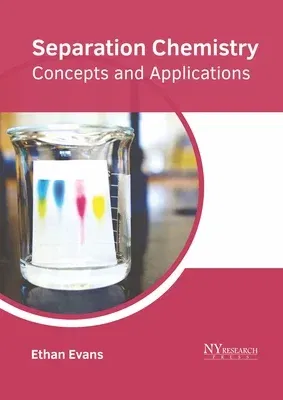The method that converts a solution or mixture of chemical substances
into two or more distinct product mixtures is known as the separation
process. It plays a significant role in the field of chemistry. Some
chemical elements or compounds exist in an impure state of nature.
Separation processes exploit differences in physical properties or
chemical properties between the constituents of a mixture. They are
classified according to the particular differences they use to achieve
separation. Multiple operations are used if no single difference can
accomplish the desired separation. For analytical or preparative
purposes, separation can be done on a small scale such as in a
laboratory. Large scale or intermediate scale is only considered for
preparative purposes. Some of the processes used in separation chemistry
include adsorption, chelation, chromatography, decantation,
centrifugation, electrophoresis, fractional distillation, etc. This book
explores all the important aspects of separation chemistry in the
present day scenario. It strives to provide a fair idea about this
discipline and to help develop a better understanding of the latest
advances within this field. Coherent flow of topics, student-friendly
language and extensive use of examples make this book an invaluable
source of knowledge.

